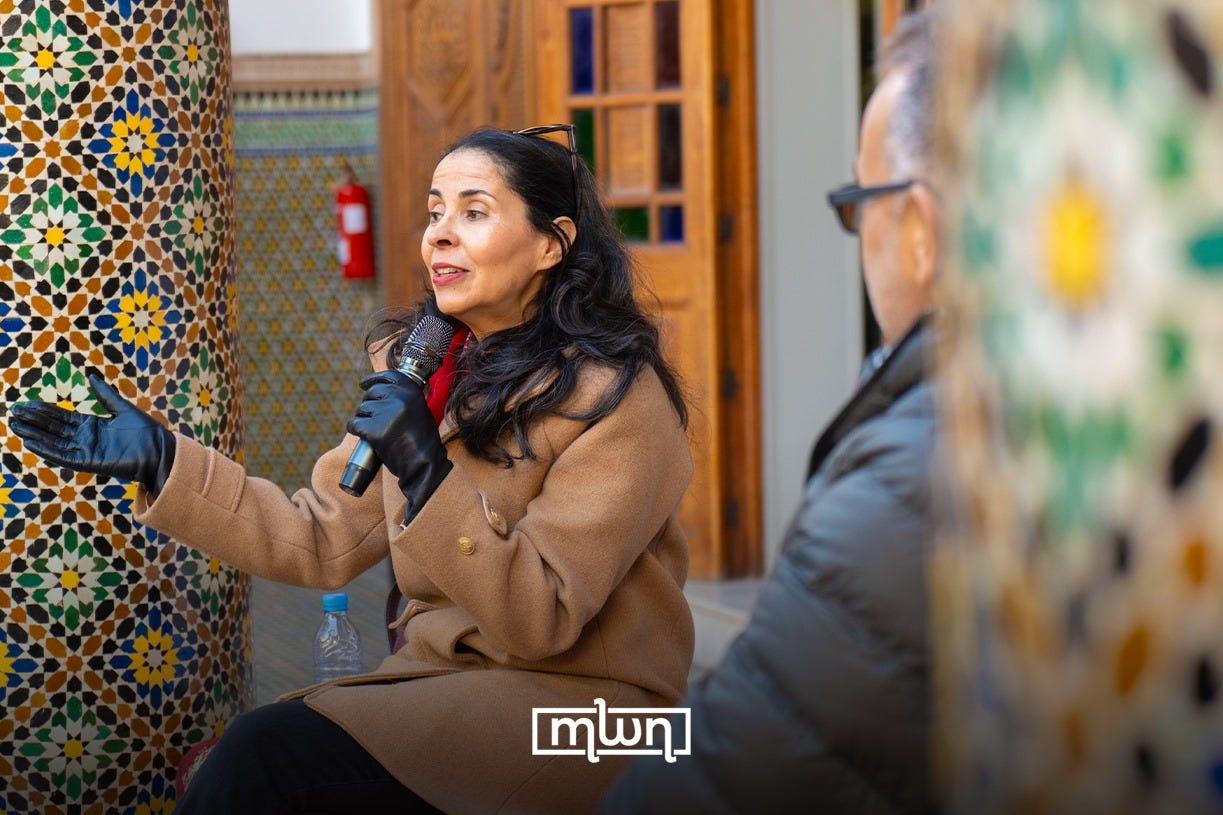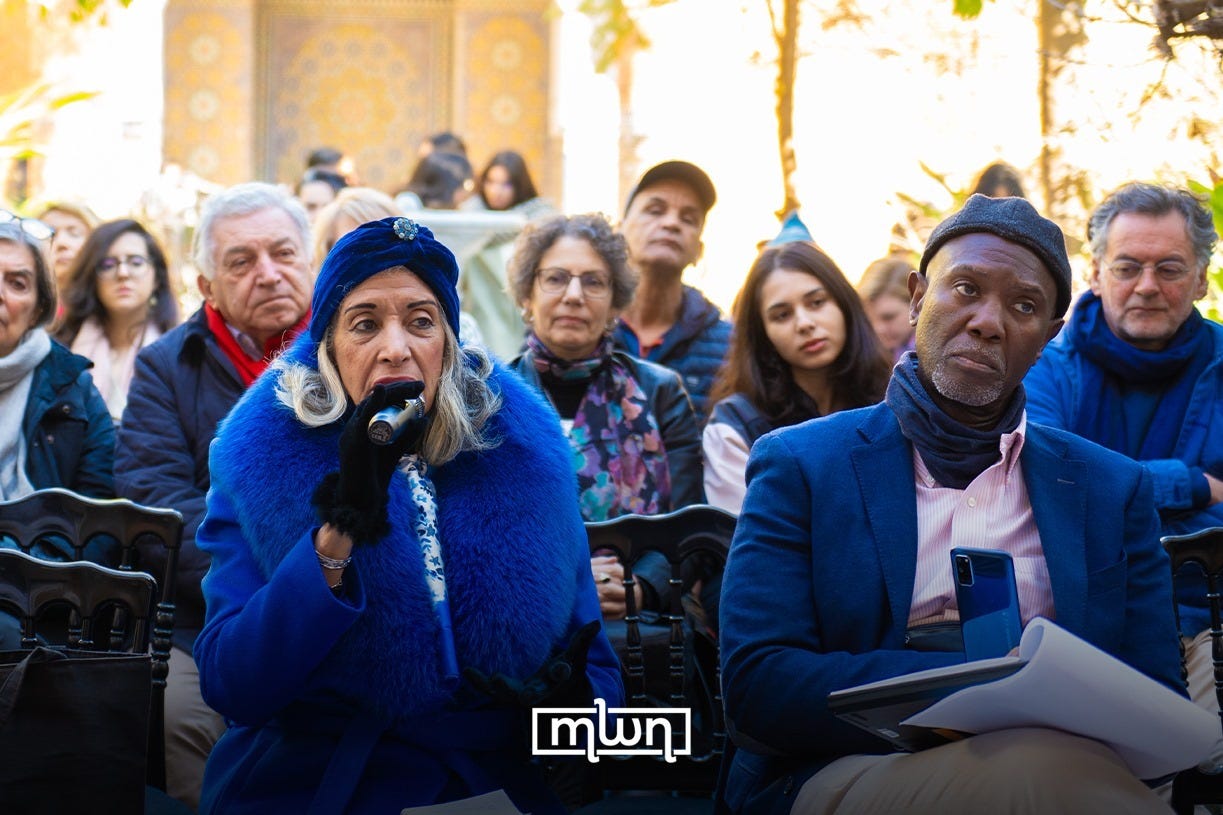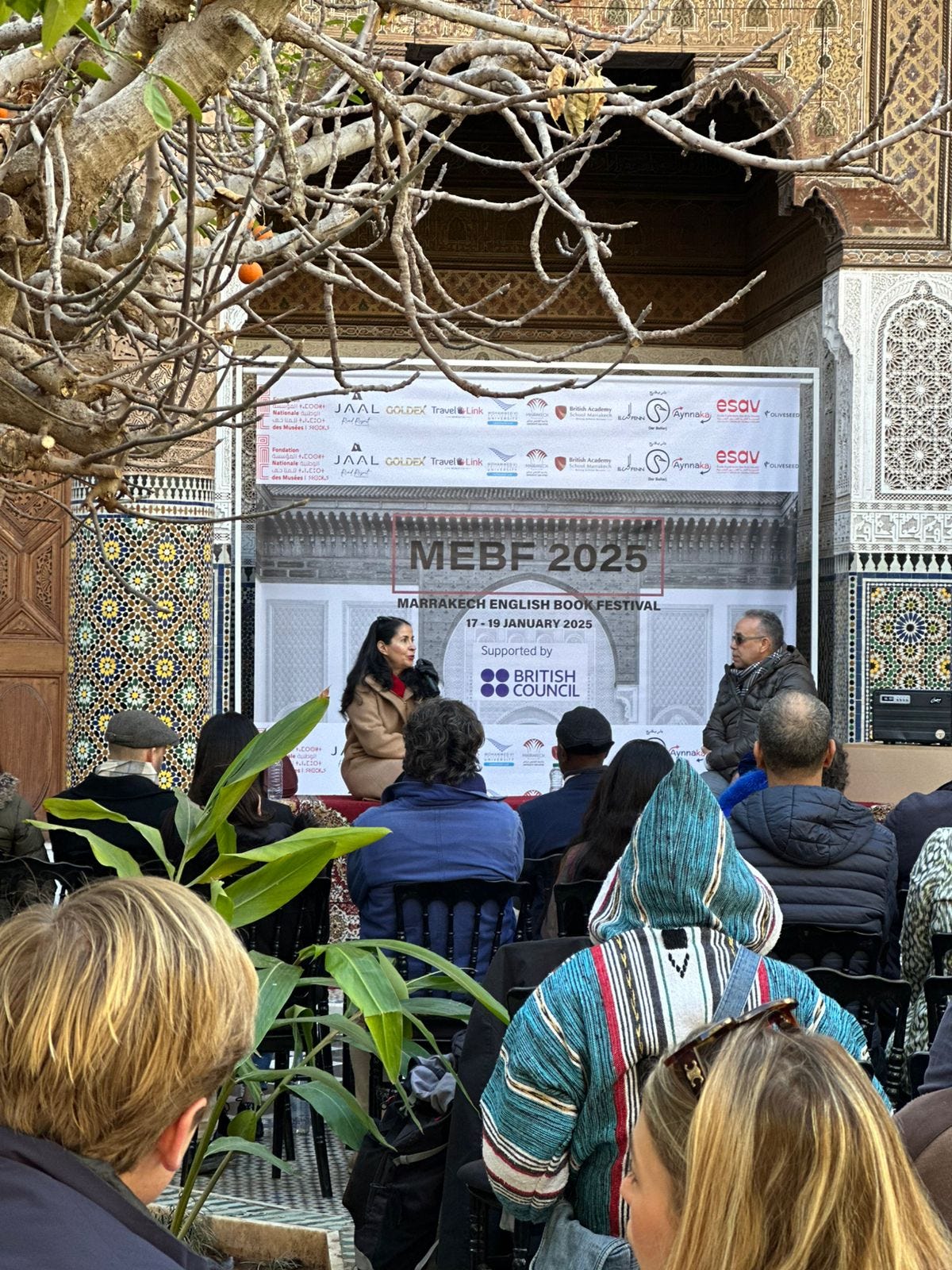Read... Write... Repeat...
Moroccan novelist Laila Lalami gives a master class for aspiring writers
Set in the courtyard of Dar al Basha Museum, dozens of bibliophiles, readers and writers enjoyed interviews and forums with authors, poets, and publishers at the Marrakesh English Book Festival.
A century ago, Dar al Basha, or the Governor’s palace, would be bustling with noblemen and dignitaries speaking Arabic and French. But this festival celebrated the English language. And in Morocco, English is quickly becoming the lingua franca. I am always amazed by young Moroccans who, without ever leaving this Cherifian Kingdom, can speak, read and write in English with incredible fluency.
With the continued help of sponsors like the British Council and many other local organizations, this festival will build its audience base and become a must-go event. They have already done an fantastic job by inviting writers from all over the world.
I heard about the festival the night before and boarded an early morning train to arrive in Marrakesh at 9AM in time to hear one of my favorite Moroccan writers.
Laila Lalami, born in Rabat, gave a great talk about her life and accomplishments as a writer. a has risen to great acclaim for her writing with over 25 honors, awards and recognitions. I’ve only read one of her novels but this year I plan to read her latest book, The Other Americans, which was published in 2019. She announced that her next six weeks will be her promotional tour for her latest novel, The Dream Hotel, which will be available in bookstores in March.

During her interview, she provided a crash course for aspiring writers and novelists. It was chilly in the shade of Dar al Basha courtyard, but her message and advice was warmly received.
“I think I became a writer, because at first, I was a reader,” said Lalami.
She grew up in an environment where she saw both of her parents sit at opposite sides of the couch deeply engrossed in books. Her family life included books and she spent time at book fairs, libraries and used book stores. Lalami attributed reading as a tool to develop writing skills.
“Turn off the internet.”
Duh. Makes sense; but it’s no easy task. Our phones have turned into an appendage that we can’t live without. The internet with its social media and news reports deadens the attention span. But we still scroll. Writers need to have long stretches of focus and the internet is a major distraction, said Lalami.
“Learn to enjoy being alone. Writing is a solitary activity.”
Many writers like James Baldwin (who I met) and Anthony Bourdain have said the exact same thing. Writers can hang out with the crowd for hours but there is a deep calling to just be alone and write.
Sitting in noisy cafes with music and chatter works for some. But having a designating space to write in solitude is preferred.
Personally, I think that introverts who find energy in being alone are probably some of the best writers.
Lalami also suggested that a writer should have an accountable partner with whom you can share your work and trust their feedback.
“My husband is my first reader. So when I finish a draft, I give it to him.
One audience member asked Lalami if she had some kind of physical routine to build the stamina required to write.
“I think of it [writing] more as an emotional and intellectual activity,” responded Lalami. “I workout in the mornings before writing, but not to the extent of writers like Murakami.”
Haruki Murakami, a renowned Japanese novelist, is known for his stringent writing ritual which includes waking at 4AM, writing for six hours, running a 10K, swimming one mile, reading and sleeping at 9PM and repeating this ritual daily until he finishes his draft. He is a little extreme but very productive.
Lalami is a professor of creative writing at the University of California at Riverside so her daily schedule includes writing, she said, as well as teaching and mentoring future novelists.
“Each person has to create a mental image,” said Lalami. “And then you have to make it come alive.”
Lalami certainly made history come alive in her 2014 novel, The Moor’s Account. I found the book in the New York Public Library last November and read it before returning to Morocco.
This novel is an historical fiction based upon the 1527 Narvaez voyage of La Florida which included 600 men and dozens of horses. The Spanish explorer Cabeza de Vacca, who spent years living among the native people of Texas and Mexico, recorded this exploration in great details as one of four survivors.
Another survivor was Estabanico, an “Arab Negro” slave from the Azzemor region of Morocco. At birth he was named Mustafa ibn Muhammad ibn Abdussalam al-Zamori and was one of the first Africans to arrive in the Americas. His voice and lived experience would never be heard. But Lalami dedicated five years of research to retell this historic tale through the eyes and voice of Estabanico.
History, when written by the “victors” can always be slanted. By retelling this story from the point of view of an African slave gives history a new voice. This is why I love this book.
How Estabanico became a slave and survived the violence and intrigue of this journey is quite compelling. The research presented about the indigenous Americans, their language, and lifestyles is so well detailed.

The Moor’s Account, which won the American Book Award, the Arab-American Book Award, and the Hurston Wright Legacy Award, is a great read for anyone who loves historical fiction.
So much wisdom and advice was shared by the participants at the Marrakech English Book Festival.
High school student, Ghita Ayasse Ouamane, wrote a book about her experience during the devastating earthquake in September 2023 entitled, Beneath the Table.
Why write in English? she was asked. “I love English.” She is not alone. English is exploding. Young Moroccans with tremendous writing voices in English are on the rise. I hope to promote and share their stories and review their published works in the near future.




